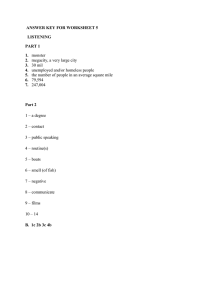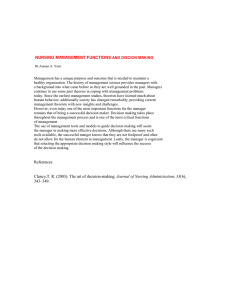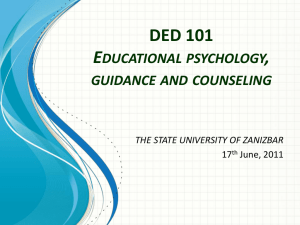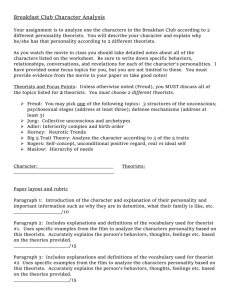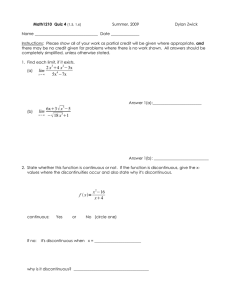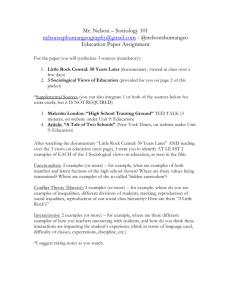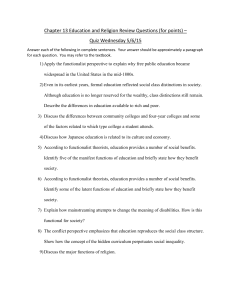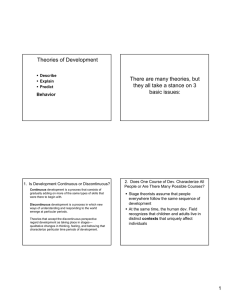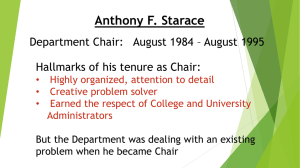Chapter 1 Summary Notes
advertisement
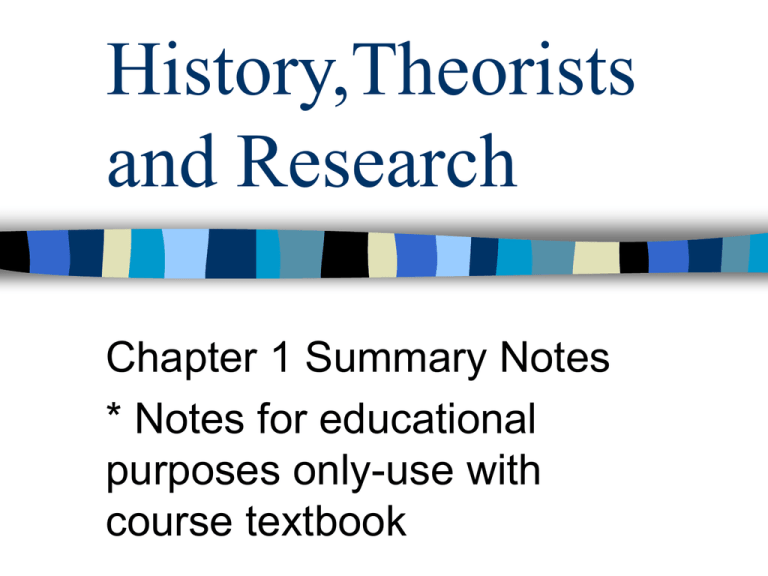
History,Theorists and Research Chapter 1 Summary Notes * Notes for educational purposes only-use with course textbook Theory Orderly, integrated set of statements that Describes Explains and Predicts behavior Provide organized frameworks for observations Provide and a guide and meaning to observations Development-Continuous or Discontinuous? Continuous Smooth No stages gradual Discontinuous Stages Rapid changes Interpretations are qualitatively different Nature vs Nurture Nature – Inborn biological – Hereditary and genetics Nurture – Physical and social world influence biological makeup Major Periods of Human Development Table 1.1 Page 8 Please read and review Ways to look at development Multidirectional Multidimensional Plastic Age-graded History-graded Nonnormative influences History John Locke-tabula rasa-blank slate Jean Jacques Rousseau-noble savages Scientific Periods Darwin-survival of the fittest Normative Periodgenetically determined process that unfolds Mental testing-Binet, IQ etc Major Theorists Freudphyschosexual theory – Id, ego and superego – Table 1.2 Development and Learning Theories and Theorists Cognitive Development Theory – Jean Piaget table 1.4 Sociocultural Theory – B.F. Skinner Multiple Intelligence – Howard Gardner – Lev Vygotsky Theory (psychosocial) -Erik Erikson table 1.3 Behavioral Theory Ecological Systems – Bronfenbrenner • Microsystem • Mesosystem • macrosystem Review Table 1.5 Please read and reivew Research Observations – Naturalistic – Structured Self reports interviews Case studies Ethongraphy Table 1.6 Ethics Protect from harm Informed consent Privacy Knowledge of results Beneficial treatment IRB
